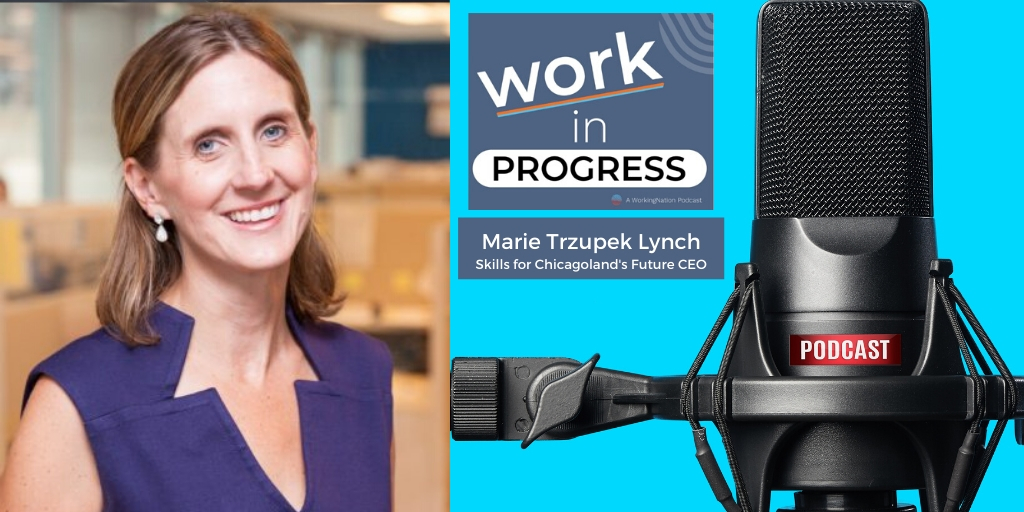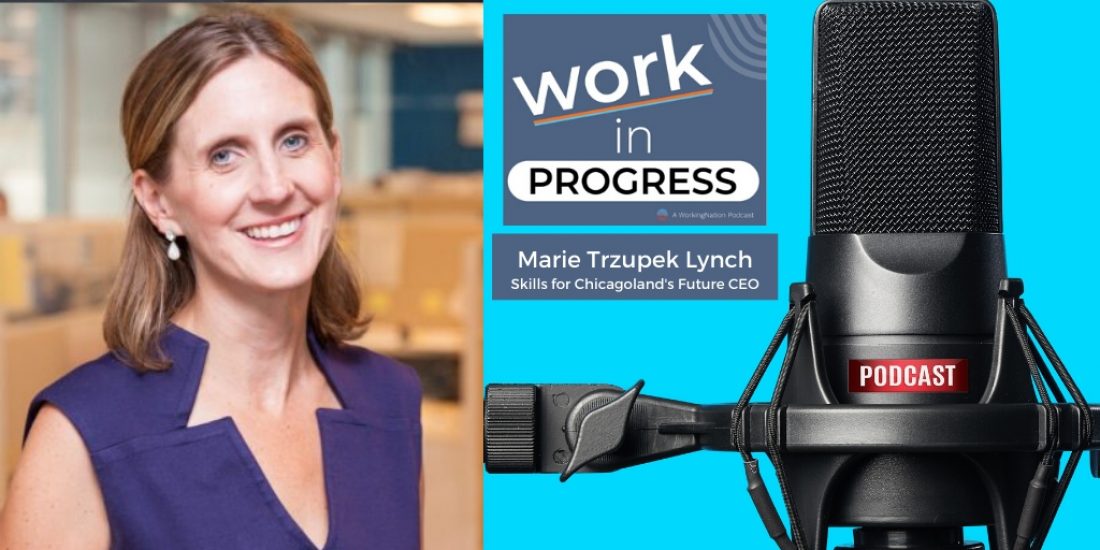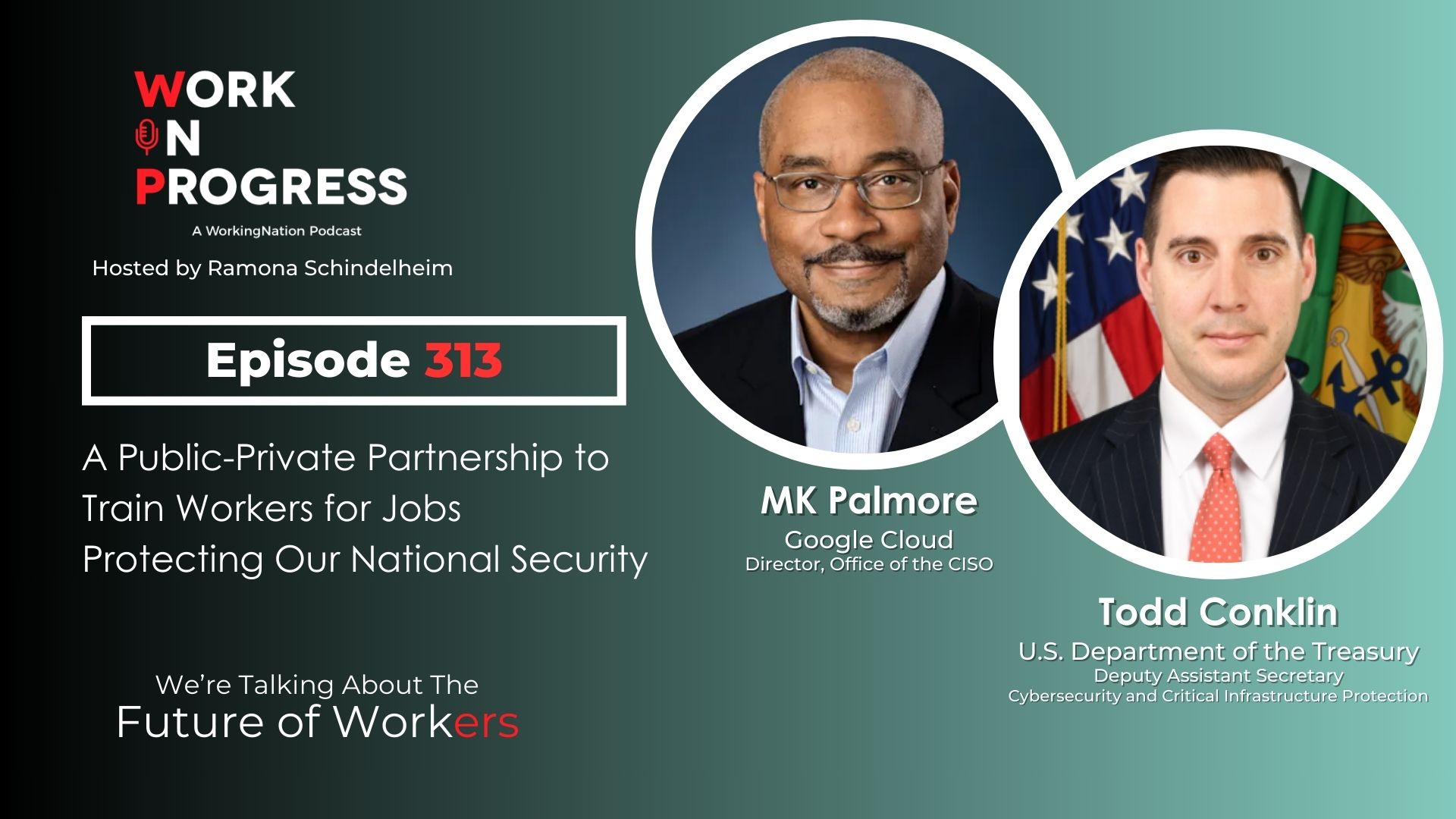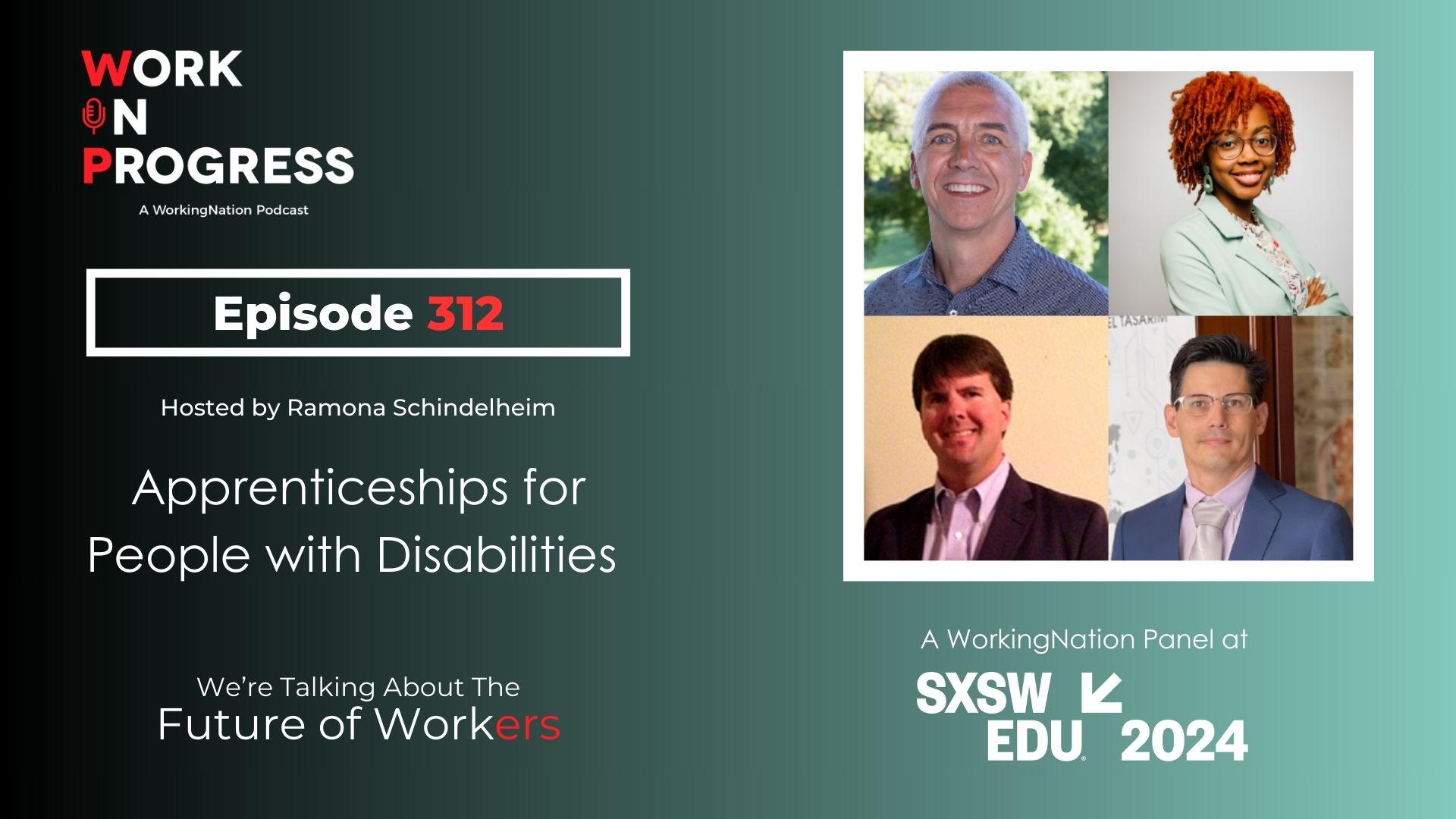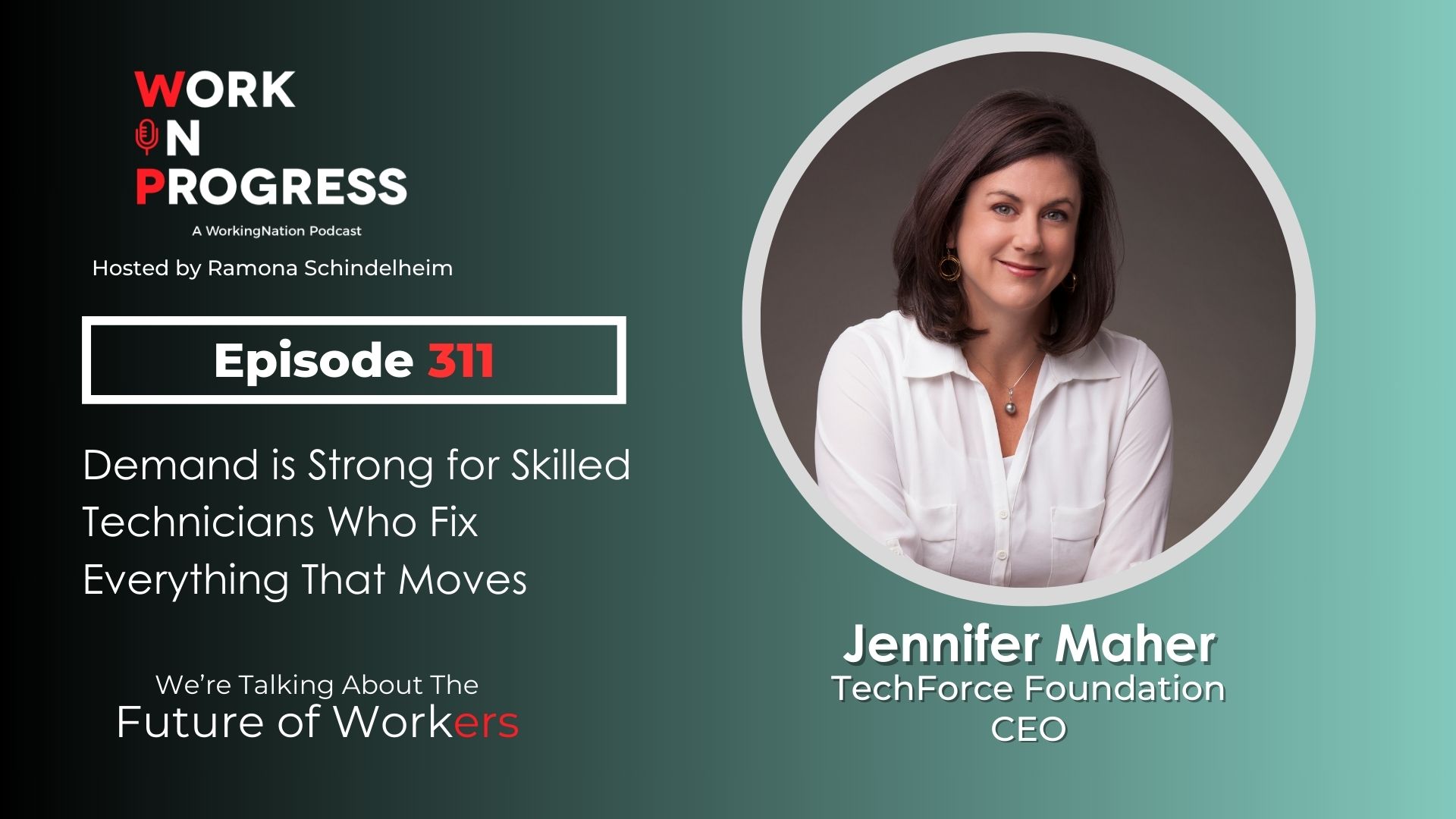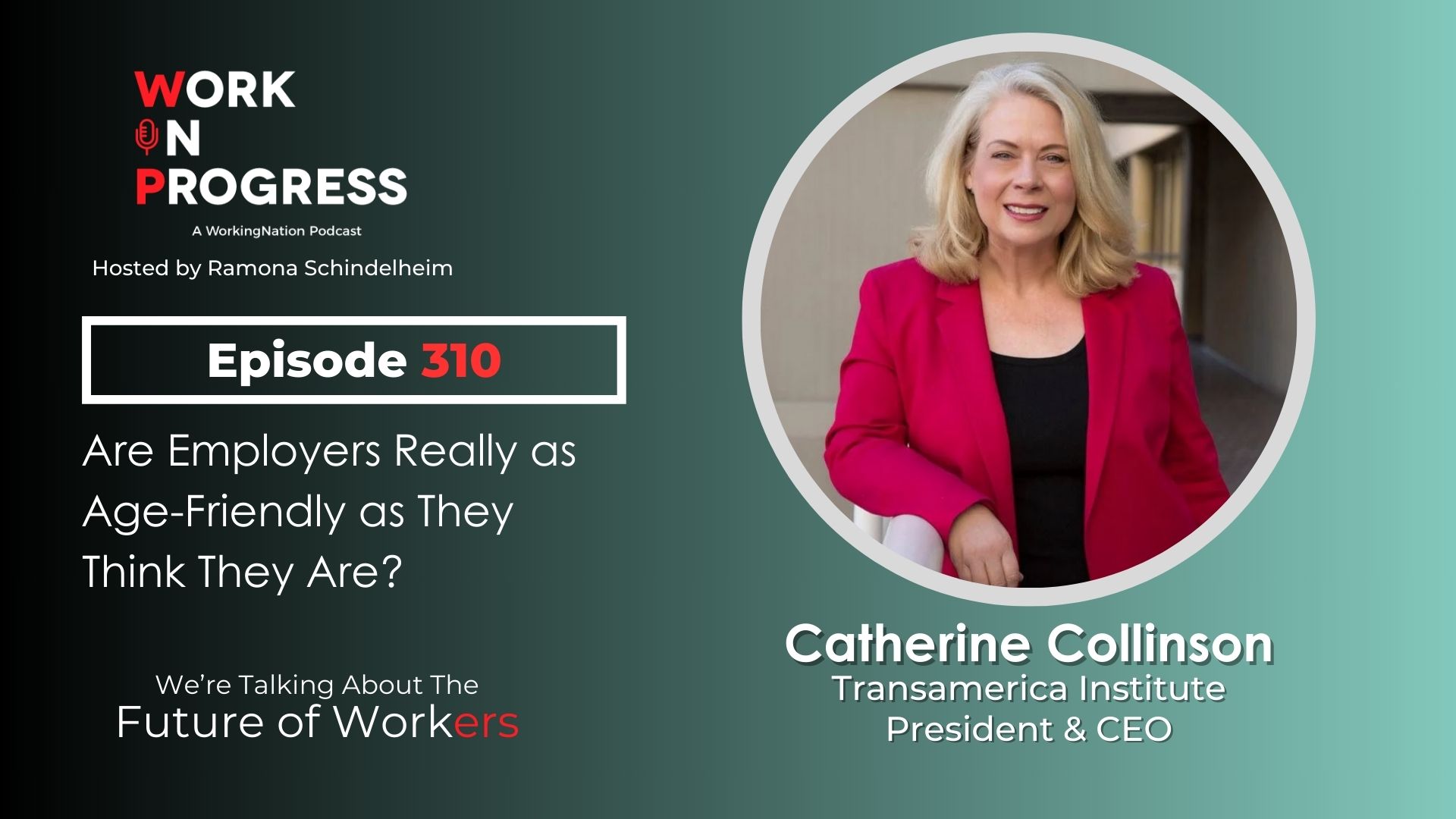Podcast: Play in new window | Download | Embed
Subscribe: Apple Podcasts | Google Podcasts | Spotify | Pandora | Youtube Music | RSS

For those men and women living at or below the poverty line before COVID-19 pandemic, the jobless rate was already above the national average. For those who had a job, it was often at minimum wage, part-time, and in a role that required few specialized skills.
As with many economic downturns, these are the people most vulnerable to losing their jobs and the least likely to find work with any businesses that is actually looking for new employees. The COVID-19 pandemic is hitting these communities hardest.
“We’re an emergency responder for the unemployed,” explains Marie Trzupek Lynch, President and CEO for Skills for Chicagoland’s Future, a Chicago nonprofit that has spent the past eight years connecting employers to the most in-need people in that city, people living in extremely poor neighborhoods with little access to jobs that pay a family-sustaining income.
The organization is making a difference, having placed over 7,000 people in jobs since 2012. The model is so successful in Chicago, it expanded to Rhode Island through Skills for Rhode Island’s Future.
In this episode of Work in Progress, Lynch and I talk about how Skills for Chicagoland’s Future is acting as a bridge between partner employers looking for workers and the unemployed and underemployed poor who are trying to find work in these trying times.
“The last month has been intense and has broken my heart. We’ve seen a massive surge to our internal hiring data base that we use for job seekers, numbers that we haven’t seen for years. We’re also already hearing from employers (we work with) that they are seeing record numbers of applicants.”
Right now, the available jobs range from entry level laborers to certified medical assistants to financial remittance processing specialists. Lynch says a lot of the people they will end up placing had already tried on their own to get the jobs with the employers, but their application was overlooked for a variety of reasons, including the number of applicants and perhaps some gaps in the applicant’s work history.
“The stats have always been 75-to-80 percent of jobs are found through somebody you know, not through online applications. It’s even that much more challenging because there’s so much competition right now,” she explains. “We’re helping get that candidate ready for the job, helping them to fine tune for that job, and vouching for them” with the employer.
You can hear more about how Skills for Chicagoland’s Future finds the employers and connects them to this overlooked community in this episode. You can listen here or look for us wherever you get your podcasts.
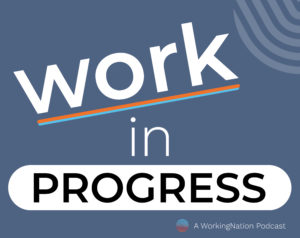
Episode 128: Marie Trzupek Lynch, President and CEO of Skills for Chicagoland’s Future
Host: Ramona Schindelheim, Editor-in-Chief, WorkingNation
Producer: Larry Buhl
Executive Producers: Joan Lynch, Melissa Panzer, and Ramona Schindelheim
Music: Composed by Lee Rosevere and licensed under CC by 4.0.
You can check out all the other podcasts at this link: Work in Progress podcasts

